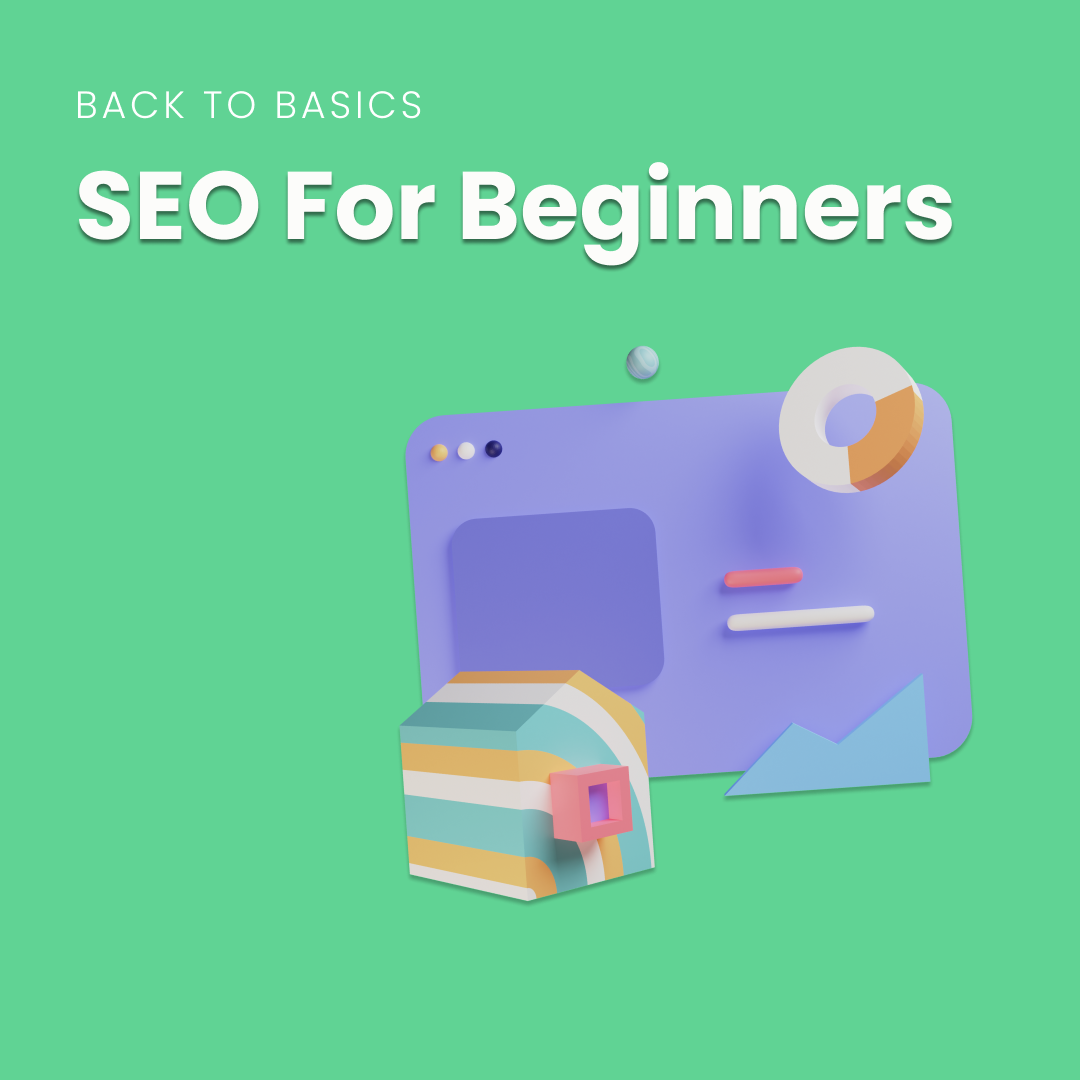If you’ve been keeping up with our recent YouTube Shorts and TikToks, you might have seen our ‘Back To Basics’ videos, giving newbies an introduction to some of the key concepts of digital marketing. For anyone who’s after a bit more info, here’s a summary of our intro to SEO.
Lots of people think SEO is some kind of voodoo techno wizardry, but it’s really nothing to be scared of. And just knowing a little bit about SEO can work wonders for your online marketing efforts.
What is SEO?
SEO stands for Search Engine Optimisation. Optimising your website should help you rank higher in search engine results (a.k.a. ‘getting on the first page of Google’), which should result in more clicks through to your website, and greater awareness of your brand.
SEO, when done right, will improve both the quantity and quality of your website traffic, and hopefully lead to more conversions on your website.
Benefits of SEO
Improves domain authority.
Google (and other search engines) provide results based on lots of different variables. One of these is ‘domain authority’ – it’s a judgement of how useful or ‘authoritative’ your website is.
This judgement is often decided according to how many other websites are linking to yours – if there’s a lot of other people linking and using your content, it probably means your content is useful – so your domain authority will be higher.
Higher SERP rankings.
Your Search Engine Results Page (SERP) rankings can be essential in getting people to visit your website. When was the last time you looked beyond the first page of results on a Google Search? Those top three ranked results are the place to aim for.
Boost conversions.
SEO can make sure that people find you for the right reasons – our recent LinkedIn post talked about the funny side of how SEO can bring you some unexpected results! But optimising for the right search terms means the people who arrive at your website are more likely to be interested in your services – which means more conversions.
Increase brand awareness.
Getting your name out there is really tricky in the crowded modern digital marketplace – good SEO will keep you visible, and front-of-mind for your target audience.
SEO tips
Keyword research.
Finding the right search terms can be tricky – it’s important to think about the search intent of your target audience. Does your web page or blog answer a question they’re asking? Are you using the words that people use to look for that answer?
Some keywords are really hard to rank for, with lots of big companies working really hard to get to the top of the rankings. You need to find the right balance between search volume (how many people are searching for that keyword every month) and difficulty (how hard it is to rank for that keyword).
There’s lots of great tools you can use for keyword research – Google’s Keyword Planner is free to anyone with a Google Ads account (which is also free). Ubersuggest is also a great free tool that can be installed via a Chrome extension.
Competitor research.
Competitor research is an essential part of SEO. Once you’ve found your keywords, you need to see which websites are ranking the highest for those keywords. Look carefully at why they’re ranking so high – how are they answering the searcher’s question?
It’s also useful to look at companies who you consider to be your direct competition. Look at how they use SEO to get their results, and look at any areas where they might be missing a trick – is there a gap in the market you can fill?
Internal linking/backlinking strategy.
Links aren’t just important for domain authority – they help search engines understand what your content is about, too. Internal links between different pages of your website will send clear signals to search engines about what purpose your content serves.
For example, an online sportswear shop would benefit from linking blogs about trainers to the trainer product page, so that all the keywords on those blog pages were pulling the ‘link juice’ towards the page that you’d want to be associated most with any relevant searches for trainers. The search engine sees the links as a signal of importance for the product page.
Hopefully, these tips have given you some ideas about how to optimise your website. If you’d like to see how the professionals do it, here’s a useful breakdown of Trio’s SEO processes and services.



